


From Nation of Change:
“Accused of organizing phony protests in support of their crops and using their profile as a mega corporation to influence key legislators, Monsanto has openly admitted influence in the key Boulder decision amid serious heat from the press.”
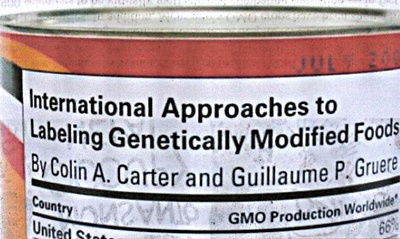
As concerns over the consumption of genetically modified foods continue to grow internationally, legislation is increasingly being introduced to mandate the labeling of products containing genetically modified ingredients. With thousands — if not millions — of products lining the grocery store shelves containing at least some genetically modified organisms (GMOs), consumers are demanding action. A total of 18 states are now examining laws that seek to explicitly label products containing GMOs.
Needless to say, the initiative isn’t making Monsanto very happy – the leading producer of genetically modified seeds with 90 percent of the market cornered. In fact, Monsanto has admitted influencing previous decisions to root out their GMO crops in places like Boulder, Colorado. Accused of organizing phony protests in support of their crops and using their profile as a mega corporation to influence key legislators, Monsanto has openly admitted influence in the key Boulder decision amid serious heat from the press.
Currently, millions of United States citizens — along with many international residents — are unknowingly consuming GMOs within their food. Sadly, many consumers believe that marketing terms like ‘all natural’ actually protect them from GMOs and other harmful ingredients. It is for this reason that concerned consumers are taking action against companies sporting the ‘all natural’ label while simultaneously using GMOs in their products. One individual has launched a suit against FritoLay for loading their products with GM ingredients despite labeling them as natural. In his case, suit leader Chris Sakes says there’s nothing natural about the highly-concerning genetic modification process.
Among the 18 states, California and Illinois stick out as containing the country’s biggest market. However, the GMO labeling initiative stretches nationwide. Advocates have repeatedly demonstrated their resistance to GMOs, with more than 500 activist groups banding together over the Just Label It campaign. One petition to the FDA, filed by the Center for Food Safety, called upon the agency to require labels for GMO-containing foods. Shockingly, the petition received 85,000 signatures in support. The number marked the most ever for a federal food petition.
Why isn’t the FDA and USDA responding to the massive amount of public concern? After all, a review of 19 studies even found that GMO crops can cause organ damage.
“Fifty countries have mandatory labeling. We’re one of the only developed countries that doesn’t. GMOs are labeled in China, Russia. Why would consumers in those countries have this information and we not have it here?” said Megan Westgate, executive director of the the Non-GMO Project.

From Alternet:
This November, in a food fight that will largely determine the future of what we eat and what we grow, Monsanto will face its greatest challenge to date: a statewide citizens’ ballot initiative that will give Californians the opportunity to vote for their right to know whether the food they buy is contaminated with GMOs.
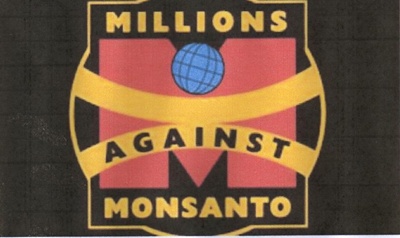
For nearly two decades, Monsanto and corporate agribusiness have exercised near-dictatorial control over American agriculture, aided and abetted by indentured politicians and regulatory agencies, supermarket chains, giant food processors, and the so-called “natural” products industry.
Finally, public opinion around the biotech industry’s contamination of our food supply and destruction of our environment has reached the tipping point. We’re fighting back.
This November, in a food fight that will largely determine the future of what we eat and what we grow, Monsanto will face its greatest challenge to date: a statewide citizens’ ballot initiative that will give Californians the opportunity to vote for their right to know whether the food they buy is contaminated with GMOs.
A growing corps of food, health, and environmental activists - supported by the Millions against Monsanto and Occupy Monsanto Movements, and consumers and farmers across the nation - are boldly moving to implement mandatory labeling of genetically engineered foods in California through a grassroots-powered citizens ballot initiative process that will bypass the agribusiness-dominated state legislature. If passed, the California Right to Know Genetically Engineered Food Act will require mandatory labeling of genetically engineered foods and food ingredients, and outlaw the routine industry practice of labeling GMO-tainted foods as “natural.”
Passage of this initiative on November 6 will radically alter the balance of power in the marketplace, enabling millions of consumers to identify - and boycott - genetically engineered foods for the first time since 1994, when Monsanto’s first unlabeled, genetically-engineered dairy drug, recombinant Bovine Growth Hormone (rBGH), was forced on the market.
As Alexis Baden-Mayer, Political Director for the Organic Consumers Association, pointed out at an Occupy Wall Street teach-in in Washington DC in early April: “The California Right to Know Genetically Engineered Food Act ballot initiative is a perfect example of how the grassroots 99% can mobilize to take back American democracy from the corporate bullies, the 1%. By aggressively utilizing one of the last remaining tools of direct democracy, the initiative process (available to voters not only in California and 23 other states, but in thousands of cities and counties across the nation), we can bypass corrupt politicians, make our own laws, and force corporations like Monsanto to bend to the will of the people, in this case granting us our fundamental right to know what’s in our food.”
Moving the BattlegroundThis is not the first time Monsanto has been challenged by citizens’ initiatives or state and local legislative efforts. But this time, the momentum is in our favor.
In the past, GMO “right-to-know” activists have been outmaneuvered and outgunned by Monsanto and its minions in every state, except Vermont and Connecticut, where passing a labeling bill is still, at least theoretically, a long-shot. (Monsanto recently threatened to sue the state of Vermont if legislators there pass a GMO labeling bill).
Efforts to pass GMO labeling laws at the federal level have gone nowhere, despite the fact that more than one million consumers have emailed “Just Label It” petitions to the FDA, demanding mandatory labeling. (The FDA counted only 394 of the signatures, claiming that the main petition was submitted as a single document, or docket, and therefore counted as only one signature.)


From Nation of Change:
“Hundreds of the anti-Monsanto activists gathered in Kathmandu in front of the U.S. embassy, pouring out from their homes just shortly after the announcement was made.”
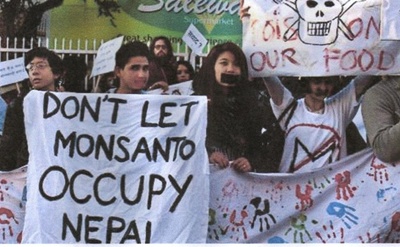
After the Nepalese government decided to allow Monsanto into their borders and subsequently force farmers to use genetically modified seeds, the citizens took to the streets. The starving nation let Monsanto in despite recent and massive bans in a number of EU countries. In addition, Monsanto’s GMO crops have been shown by a team of 900 scientists to be virtually ineffective at combating starvation — in fact, they perform way worse than traditional and sustainable agriculture.
Now, according to some Nepal-based activists, Monsanto has been run out of the country by fierce protesting. Threatening the nation’s main crop, corn, Monsanto’s GM corn would certainly not help the 40% of Nepalese citizens who are currently malnourished. It seems that the Nepalese people are quite aware of this fact as well, as hordes of activists demonstrated their opposition to Monsanto and genetically modified creations on the city streets. Hundreds of the anti-Monsanto activists gathered in Kathmandu in front of the U.S. embassy, pouring out from their homes just shortly after the announcement was made. According to the activist group ‘Stop Monsanto in Nepal’, the protests may have succeeded. In a post on Facebook on April 6th, the group stated:
Celebrating Victory! We knew from internal sources that the Nepal-Monsanto-USAID deal was postponed indefinitely but we didn’t have a public document to claim the victory officially. But Hari Dahal, Joint secretary and Spokesperson for the Ministry of Agriculture and Cooperatives (MoAC) mentioned on a recent ‘BBC Sajha Sawal’ that Monsanto will NOT be allowed in Nepal.
The news comes just after Monsanto was taken to court over ‘knowingly poisoning workers‘ and causing devastating birth defects. Argentinean tobacco farmers stated that the biotech giant knowingly poisoned them with herbicides and pesticides and subsequently caused ”devastating birth defects” in their children.

From Care2:

Monsanto, the genetically modified food giant, has recently purchased Beeologics, a leading bee research firm. Borrowing a move from the tobacco companies’ playbook, Monsanto appears to have decided that if you do not like the scientific reports coming out about you, then you should just buy the labs. Beginning in 2007, Beeologics has researched two critical bee issues: colony collapse disorder and Israeli Acute Paralysis Virus. In late September of last year, Monsanto acquired Beeologics for an undisclosed amount. In making this purchase, Monsanto now has control of research that has previously pointed at its pesticides for contributing to – if not outright causing – a sharp decline in bee populations. Multiple studies in recent years have linked pesticides and high fructose corn syrup with colony collapse disorder. Portential outcome manipulations
With Monsanto’s vested interest in bee research’s conclusions, there is reason to believe that the true causes of and solutions for these bee epidemics may be manipulated if not lost entirely. Indeed, it seems likely that now some new study released by Beeologics will find that GMOs are not the problem after all.
Prior to the acquisition, the U.S. Department of Agriculture looked to Beeologics as its top resource for bee research. In effect, Monsanto has now positioned itself even better with the USDA. For that reasons, health experts and entomologists alike are upset that Beeologics would be willing to self itself to Monsanto in the first place. Alas, sometimes it is more about the money than the honey.
Will own new research toolsAnother motivation for Monsanto to take over the research company is to acquire the Remebee technology that Beeologics had been developing. In a statement, Monsanto said, “[We] will use the base technology from Beeologics as a part of its continuing discovery and development pipeline. Biological products will continue to play an increasingly important role in supporting the sustainability of many agricultural systems.” Evidently, the way to solve problems caused by chemicals is by using more chemicals.
Still, Monsanto insists it will use Beeologic’s research to improve the world. “We’re absolutely committed to Beeologics’ existing work,” said Monsanto spokesperson Kelly Powers. From an optimistic perspective, one could take Monsanto at its word and hope that a corporation that is causing the bee problem would then use information it has purchased to help fix the situation.
Given Monsanto’s track record, however, many are definitely adopting a more pessimistic perspective, assuming that Monsanto will find a way to profit off whatever it deems the solution to the bee crisis with some exclusive product or perhaps just cover it up entirely. After the Natural Society named Monsanto the “Worst Company of 2011” for a myriad of reasons, here’s hoping that other bee research organizations keep buzzing toward a true identification of the threats posed to bees.

From Nation of Change:

Did Monsanto actually plant genetically modified alfalfa before it was deregulated by the USDA? There is some shocking evidence that, until recently, was withheld from the public showing that Monsanto’s genetically altered alfalfa may have been set free in 2003 — a full two years or more before it was deregulated in 2005. In a letter, obtained by NaturalSociety with permission to post for public viewing, it becomes clear that the USDA may have turned a blind eye to the entire situation, allowing widespread GMO contamination of GMO-free crops.
Amazingly, the letter actually proves that the USDA was fully aware of the situation. In order to fully understand the intricate details of this event, it is first important to understand a few key factors regarding alfalfa and its connection to the entire food supply.
Alfalfa is a perennial plant that grows for more than 2 years and may not need to be replanted each year like annuals. Because it is a perennial plant, it is exceptionally vulnerable to contamination. Interestingly, the modified alfalfa — created by Monsanto in partner with a group known as Forage Genetics — was the first perennial plant to be deregulated for open planting by the USDA. But did Monsanto unleash the plant before this occurred?
This is very serious because it is only a matter of time before alfalfa across America could be corrupted with Monsanto’s patented genetically modified trait. Organic meat and dairy could be tainted when animals are fed the modified alfalfa as well, threatening the very integrity of the organic food supply. What’s more, the contamination of natural alfalfa could be nearly impossible — if not entirely impossible — to remedy, so it could actually fracture the genetic stability of the entire crop on a global scale.
A letter from Cal/West Seeds shows that evidence of contamination was withheld and the USDA turned a blind eye to proof of contamination in 2005 which shows it was planted at least two years before it was initially deregulated in 2005. As you can see for yourself, the official letter states:
We first discovered the unintended presence of the Roundup Ready gene in our conventional alfalfa seeds in 2005. It was identified in one of our foundation seed production lots grown in California. We tested the foundation seed lot priot to shipping it to a producer who intended to plant it for organic seed production.
In another telling segment, the author writes:
We detected the presence of the … Roundup Ready gene in both our foundation seed and certified seed prior to deregulation.
In order to protect the safety of the individual, some further contents cannot be divulged. Remember in the past, those who have stood up against Monsanto have received anonymous death threats — in one case, the threats were directed towards a mother and her children.
This video documents the timeline of events that led to the deregulation of Monsanto & Forage Genetics’ GMO alfalfa that is contaminating natural alfalfa. As the video explains, the lawyers representing the farmers against Monsanto failed to hold an evidentiary hearing so the injunction (ban) against planting GMO alfalfa was removed and the case was sent back to the lower district court. The lawyers pursued no further action on this case.
Contamination levels are still very low, but will undoubtedly increase over time with unexpected results (like superweeds), so stopping the further planting of GM plants like alfalfa is of high concern. Furthermore, it would set a precedent for banning other GMO perennial plants as well — a monumental move in the legislative fight against GMOs. This letter, compounded with the other evidence presented in this article, is paramount in displaying just how serious of an issue genetic contamination is. What’s more, the USDA appears to have known the entire time. It’s time to spread the word.

From Truefood (Greenpeace):

Reported by Nation of Change:
“The proposed modifications promote a privatizing model that uses patents and “Plant Breeders’ Rights” (PBR) to deprive farmers of the labor of centuries in developing seed.”

Progressive small farmer organizations in Mexico scored a victory over transnational corporations that seek to monopolize seed and food patents. When the corporations pushed their bill to modify the Federal Law on Plant Varieties through the Committee on Agriculture and Livestock of the Mexican Chamber of Deputies on March 14, organizations of farmers from across the country sounded the alarm. By organizing quickly, they joined together to pressure legislators and achieved an agreement with the legislative committee to remove the bill from the floor.
What’s at stake is free and open access to plant biodiversity in agriculture. The proposed modifications promote a privatizing model that uses patents and “Plant Breeders’ Rights” (PBR) to deprive farmers of the labor of centuries in developing seed. The small farmers who worked to create this foundation of modern agriculture never charged royalties for its use.
Although the current law, in effect since 1996, pays little heed to the rights of small farmers, the new law would be far worse. Present law tends to benefit private-sector plant breeders, allowing monopolies to obtain exclusive profits from the sale of seeds and other plant material for up to 15 years, or 18 in the case of perennial ornamental, forest, or orchard plants–even when the plants they used to develop the new varieties are in the public domain.
The legislative reform would extend exclusive rights from the sale of reproductive material to 25 years. Further, it seeks to restrict the rights of farmers to store or use for their own consumption any part of the harvest obtained from seeds or breeding material purchased from holders of PBRs.
The proposed law would also include genetically modified organisms (GMOs) among the plant varieties covered, converging with the so-called Monsanto Law (Law of Biosecurity and Genetically Modified Organisms). This is an absurd inclusion, since GMOs are created by introducing genetic material from non-plant species.
GMOs cannot be considered a distinct variety, because they do not result from the genetic variability that underlies natural selection. They are the result of manipulation through biotechnology that crosses the boundaries between species and realms. Another absurdity is the private appropriation of genetic information from live organisms, even those altered with genes of other species.
The proposed law would create a “Monsanto Police,” by giving the National Service for the Inspection and Certification of Seeds the authority to order and conduct inspection visits, demand information, investigate suspected administrative infractions, order and carry out measures to prevent or stop violations of PBR, and impose administrative sanctions, which are increased by the proposal. It would have a government agency promote PBRs held by individuals or corporations.
Holders of PBRs already gain exclusive rights to exploit plant varieties and material for their propagation. The bill under consideration would extend those rights over the products resulting from use of monopolized plant varieties so that, for example, a special license would have to be obtained to use the variety in foods for human consumption or industrial uses. Farmers Win a Battle, but the Offensive Continues
Now that the regular session has been concluded and the bill wasn’t presented, it will have to wait for a new session. Withdrawal of the bill was a victory for the social organizations over the transnational beneficiaries of the bill, particularly Monsanto.
The battle was won, but the bill is still pending as Monsanto and other large corporations wait for a better time. With Mexican elections just months away, they’re waiting for a time when the political cost of these measures that harm producers’ rights won’t have immediate electoral repercussions.
As now formulated, the reform would further strengthen the legal underpinnings for pillage that the Mexican Congress has been shaping since the North American Free Trade Agreement (NAFTA) began to be negotiated and then went into effect. The proposed reforms derive directly from the intellectual property agreements contained in annex 1701.3 of NAFTA.
In 2005, the Monsanto Law opened the door for cultivating genetically modified seed in Mexico. The seed is the property of the same transnational corporations that produce the agricultural chemicals used on the GMOs, to their own benefit and the detriment of the food supply, health, and economic well being of the Mexican people.
When the reforms went through the Senate and Chamber committee, members of the Mexican Congress–with the exception of members of the Party of the Democratic Revolution–tossed caution aside and disregarded the warnings of scientists not paid by the transnationals. They decided to forget that small farmers and native peoples, with their ancestral practices of cultivation, selection, and free interchange of seeds, are the ones who created existing plant varieties and are the real owners of the agro-genetic wealth of the country.
Organizations of small farmers declared their opposition because the proposed reforms would deepen the crisis of Mexican agriculture and increase poverty and food dependency, both of which have increased alarmingly under the present administration.
The organizations presented a document to the leaders of all factions in the Chamber of Deputies requesting them to send the proposed law back to Committee. They demanded that the legislature open up a discussion on the inadvisability of continuing to privatize the means of production of foodstuffs, given the Mexican government’s obligation to uphold the right to food.
The right to food was only recently approved as a constitutional reform in Mexico. The United Nations Special Rapporteur for the Right to Food, Olivier De Schutter, anticipated the debate by stressing the need to strengthen the legal framework to oppose the reform on Plant Varieties already approved by Congressional Committee.
In the final report of his visit to Mexico, submitted a few weeks ago, the UN official said that Mexico should approve a law establishing a framework for the right to food, declare a moratorium on planting genetically modified corn, and adopt measures against the monopolization of the production of seeds.
In addition, farmers argue that the nation needs community seed banks and decentralized, participatory programs to conserve agricultural biodiversity. The organizations are preparing to extend the debate and launch legal action against the bill, such as filing injunctions and claims of unconstitutionality, since Article 27 of the Mexican Constitution protects the genetic diversity of species as part of the national patrimony.


From SumofUs:
A recent French study of Monsanto genetically-modified corn has turned up shocking and disturbing images of rats weighed down with disgusting tumors the size of golf balls. The two-year study found that rats fed Monsanto’s NK603 corn developed more tumors and severe diseases than a control group fed natural corn.
France has twice banned the corn from its country, but twice has seen that ban overturned by the European Food Safety Authority, most recently in May. According to the EUFSA, it is because "there is no specific scientific evidence, in terms of risk to human and animal health or the environment" to support a ban. But the results of this new study are too big to ignore, and with our help the EU might finally listen. Russia has already banned the product, and the European Union should be next in line to protect consumers.

“With Russia now acting to secure food safety, many other nations will surely follow.”

Following the groundbreaking French study that graphically linked the lifetime consumption of Monsanto’s GMO corn in rats to massive tumors and direct organ failure, Russia’s premiere consumers rights organization has suspended both the importation and use of Monsanto’s GMO corn within the nation’s borders.
The move may soon be echoed by other nations, who may soon be urged by France to ban Monsanto’s GMOs due to serious health concerns. France, who also recently upheld a key ban on growing GMOs, has been instrumental in alerting the world to the dangers of GMOs and Monsanto’s overall corruption. In the nation’s latest announcement, it was revealed that France’s Agriculture Minister was launching an investigation into the GMO study, ultimately calling for European authorities to ban Monsanto’s GMOs in order to protect citizens in the event that the study was found to be sound.
It seems that France has become somewhat of a consumer health watchdog in more than just one area, simultaneously tackling the issue of pesticide contamination as well. It was even announced that the French government was seeking to ban crop dusters in all areas possible, aiming to reduce the amount of obesity-linked pesticides within the food supply.
Monsanto Still Clinging to Old GMO MantraMeanwhile, Monsanto is continuing to stick to its tired statements regarding the ‘safety’ of its GMO crops and Roundup herbicide. Instead of discussing not only the French study finding that the company’s GMOs led to horrendous tumors that led to rats literally dragging them along the ground as they walked, they claim that the information ‘does not warrant’ any concern at all from European officials. Just as Monsanto (and the US government) ignored evidence linking Roundup to DNA damage and infertility, it appears they intend to do it once more and hope that it all goes away.
Unfortunately for Monsanto, it’s not going away this time.
With Russia now acting to secure food safety, many other nations will surely follow.
While the United States may continue to ignore the issues surrounding GMOs and Monsanto’s blatant disregard for human health (they were caught running ‘slave-like’ working rings, after all), many foreign nations will not. Countries like Poland, Peru, and Hungary have already taken action in banning or removing Monsanto’s GMO crops. And even in the United States grassroots movements have spawned bills like Proposition 37 – the monumental bill in California that seeks to label GMOs.

“After the study not only did France call for a potential worldwide ban on GMOs pending the results of their in-depth analysis, but Russia’s major consumer rights organization announced a ban on both the importation and use of Monsanto’s GMO corn.”
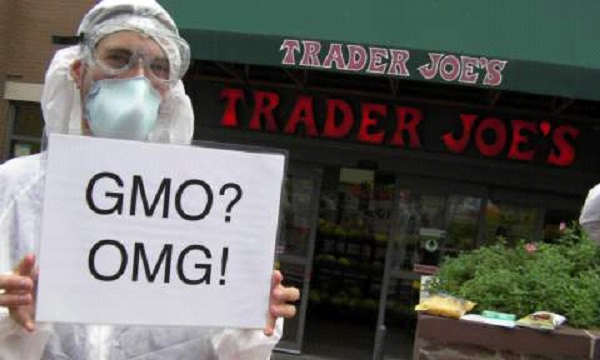
Is the end of Monsanto within reach? It has certainly been a rough couple of weeks for the mega corporation as the real dangers surrounding GMOs are being brought to the attention of consumers on a global scale like never before. It all started with the monumental French study finding a serious link between the consumption of Monsanto’s Roundup-drenched GMOs and massive tumors. Being called the ‘most thorough’ research ever published on the real health effects of GMOs, the study led to even larger victories.
After the study not only did France call for a potential worldwide ban on GMOs pending the results of their in-depth analysis, but Russia’s major consumer rights organization announced a ban on both the importation and use of Monsanto’s GMO corn.
Prop 37 Can Label Monsanto Out of ExistenceAnd now, the Proposition to label all GMOs in the state of California is showing massive success. If Prop 37 passes, it won’t just affect California. It is very likely that other states will not just take note, but adopt similar legislation. Through this legal mechanism, we can essential label Monsanto out of existence. This is possible when considering that the average consumer is actually opposed to GMOs and heavily in favor of proper labeling.
In a major Los Angeles Times poll, registered California voters in favor of labeling outnumber pro-GMO voters by more than a 2-to-1 margin. Altogether, a whopping 61% of those polled reported supporting the Prop 37 labeling initiative. Only 25% reported opposing it.
If GMO-containing products are properly labeled, the simple fact of the matter is that less people will buy them. As of right now, very few people are even aware of what they are putting in their mouth. In fact, if the public knew that they were consuming GMOs which were linked to massive tumors and organ failure, the overwhelming majority would abandon such products. Without labeling, however, they have no idea. The same can also be said for other ingredients like high-fructose corn syrup and aspartame.
As Yes on 37 campaign manager Gary Ruskin explains:
“Monsanto, DuPont, and Coca-Cola do not want Californians to know what’s really in their food and drinks, because they fear consumers will turn away from their genetically engineered ingredients and pesticides that go with them.”
If they knew they were eating mercury in the HFCS and consuming an artificial sweetener with over 42 associated diseases, then major change would occur – change that includes forcing manufacturers to abandon these ingredients in order to stay profitable. And after all, Monsanto’s number one goal is profit. This is a company that has been caught running ‘slave-like’ working conditions in which ‘employees’ were forced to buy only from the company store and were not allowed to leave the area or their pay would be withheld.
If Monsanto’s profits were to plummet, their political reign would likely follow as well. Without an endless amount of cash to throw at crushing Prop 37, already contributing $4 million to fuel anti-labeling propaganda in California, the corporation’s massive grasp on the world of science (continually censoring studies and funding pro-GM research) and politics would virtually cease to exist.
It is essential that we ensure the passing of Prop 37 in a bid to generate the literal end of Monsanto. Once consumers actually know that they’re putting genetically modified creations into their body, real change will occur within the food supply.

One study in particular found that glyphosate (an ingredient in Roundup), leaves a residue on crops and this residue is “actually toxic to testicle cells.”
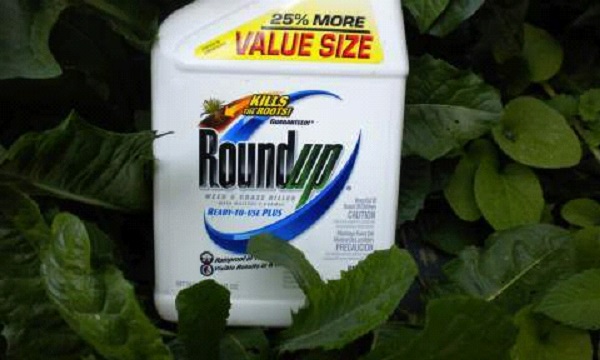
What if the pesticides and herbicides being sprayed on your food was causing your sperm to die? What if GMO crops had the same effect? What would it mean for humanity if this “modern food marvel” (as Monsanto would like you to think) was actually making men infertile, and eventually wipe us out? Sounds pretty end-of-times-ish, but it’s happening right now. Well, studies indicate that factors like glyphosate toxicity and GMO technologies could be playing a significant role in the growing number of men who struggle with fertility.
Glyphosate Toxicity and GMO TechnologyOne study in particular found that glyphosate (an ingredient in Roundup), leaves a residue on crops and this residue is “actually toxic to testicle cells.” Also, the residue lowers testosterone synthesis—this means the glyphosate toxicity lowers the amount of the male sex hormone available for the body to use.
The negative effects from glyphosate toxicity vary, but some people have been known to develop breasts, have a variety of birth defects, and have been known to experience carcinogenic effects as well. The people are also becoming sterile over time. Given the rate of consumption, they will likely be completely sterile within a decade.
Another study, this one out of Russia, found that hamsters who consume GM soybeans have a slower sexual maturation process and in a few generations, they weren’t able to reproduce.
“We noticed quite a serious effect when we selected new pairs from their cubs and continued to feed them as before. These pairs’ growth rate was slower and reached their sexual maturity slowly.” By the third generation, the hamsters were infertile.
So, what effects are they having on men now, today in the United States and around the world? Plenty.
According to a study out of Denmark, sperm counts have dropped exponentially, from an average of well above 100 million sperm cells per milliliter in 1940 to an average of 60 million per ml now. Some research has found that close to 20 percent of young men have counts as low as 20 million per ml.
Genetically modified soybeans are getting harder and harder to escape, and because we don’t know which products contain genetically modified ingredients in the United States, our safest bet is to simply avoid anything with any soy or corn derivatives—and this is nearly everything in your supermarket that’s not found in the produce aisles.
We can’t be surprised at this research, but we can be angry. Though it sounds like something out of a science fiction/world-domination type movie—it’s real life. Companies like Monsanto are killing people off, by one way or another, and the U.S. government is allowing it to happen.
For now, if you want to stay healthy, cancer free, and fertile, your best bet is to start a garden, eat foods grown locally, and stay away from processed foods at all costs.

From Organic Consumers – 16 November 2012

Prop 37, the California Right to Know GMO labeling initiative, was narrowly defeated last week thanks to a relentless, deceitful $46-million advertising blitz. Among the largest bankrollers of the NO on 37 campaign were huge multinational food and beverage companies whose subsidiaries make billions selling some of your favorite organic and "natural" brands.
Brands like Kashi. Honest Tea. Naked Juice. Muir Glen, Horizon, Silk, and Morningstar Farms.It's time to boycott the companies and brands whose dirty money confused and scared millions of California voters into voting No on Prop 37. It's time to plaster their facebook pages with this message: We won't support you until you support us. It's time to call their consumer hotlines, complain to the store managers where you buy your organic and natural products. It's time to tarnish their holy organic and natural images, to expose their hypocrisy and greed.
It's time to raise a little hell. If we raise enough hell, maybe their parent companies will come to their senses and stop carrying the water for Monsanto and the biotech industry. Maybe they'll stay neutral in the upcoming labeling battles in Washington state and Vermont.
The OCA is calling on consumers to boycott these organic and "natural" traitor brands:
• PepsiCo (Donated $2.5M): Naked Juice, Tostito’s Organic, Tropicana OrganicTell these companies that if they want your loyalty - and your grocery dollars - they must do two things:
1. Speak out publicly in favor of the pending GMO Labeling Ballot Initiative (I-522) in Washington State in 2013, as well as the pending GMO labeling bills coming up in Vermont and other states.
From Nation of Change:
“The organization is behind an African Civil Society statement calling for a ban on GM maize in South Africa and on the continent, which it hopes to submit to African governments.”

South African smallholder farmer Motlasi Musi is not happy with the African Centre for Biosafety’s call for his country and Africa to ban the cultivation, import and export of all genetically modified maize. “I eat genetically modified maize, which I have been growing on my farm for more than seven years, and I am still alive,” he declared.
Musi, 57, a maize farmer in the Fun Valley area of Olifantsvlei, outside Johannesburg, and a beneficiary of South Africa’s Land Redistribution for Agricultural Development program, has embraced the science of biotechnology with gusto.
“What have changed are my yields and my income.” He said that he earned about 225 dollars more per hectare for his GM maize crop than he did when farming ordinary maize. He said that he was helping reduce food insecurity in South Africa by growing and selling GM maize.
“Biotechnology has a very big role in food security,” Musi told IPS. “The climate has changed and I know that with drought-tolerant seed I have a tool to fight climate change. I cannot guarantee that the rain will come and I if plant crops which are not drought tolerant, I could get into debt and lose my farm.”
A report in April 2012 by the Climate Emergency Institute titled “The Impact of Climate Change on South Africa” said the country is experiencing a gradual, yet steady, change in climate with temperatures showing a significant increase over the last 60 years.
Temperatures in South Africa are predicted to rise in costal regions by one to two degrees Celsius by 2050.
But the ACB does not believe that GMOs can deliver food security on the continent, specifically in South Africa, a leading African producer of GMOs.
The organization is behind an African Civil Society statement calling for a ban on GM maize in South Africa and on the continent, which it hopes to submit to African governments. To date 656 signatures have been collected on the online statement, including those of 160 African organizations.
“We have sent an open letter to our minister of agriculture in October to ban GM maize in South Africa,” Haidee Swanby, an officer with ACB, told IPS.
“We (South Africa) have been cultivating, importing and exporting GM crops for 14 years with absolutely no impact on food security whatsoever. In fact, a bag of mealie meal is 84 percent more expensive than it was four or five years ago due to international prices and the extensive use of maize for biofuel production.”
Swanby said there was a need to improve access to food, by addressing poverty, unemployment and issues around land tenure, service delivery, infrastructure, access to markets, and unfair global trade practices.
“Genetically modified food has never been labelled in South Africa so there is no way to know if it is causing health problems,” Swanby said, calling for a rigorous scientific study into the health implications of GM food.
“If someone is getting sick, how are they going to trace it back to GMOs when they don’t know they’re eating them? We want more science, not less!”
The ACB has a supporter in Friends of the Earth International, which is also lobbying for a GMO-free Africa.
The organization’s coordinator Nnimmo Bassey told IPS that GMOs do not deliver on the promises made by the biotechnology industry. He argued that hunger in Africa is used as an excuse to contaminate and erode genetic diversity on the continent.
Bassey said that GM crops are neither more nutritious nor better yielding nor use fewer pesticides and herbicides. And he said they are unsafe for humans and for the environment. “It is all about market colonization,” Bassey told IPS. “GM crops would neither produce food security nor meet nutrition deficits. The way forward is food sovereignty – Africans must determine what crops are suitable culturally and environmentally. Up to 80 percent of our food needs are met by smallholder farmers. These people need support and inputs for integrated agro-ecological crop management. Africa should ideally be a GMO-free continent.
Friends of the Earth International cites failed GMO experiments in Africa with Bt cotton (a strain of cotton that had the Bacillus thuringiensis bacterium inserted into its genetic code) in Burkina Faso and South Africa where they had been touted as the crops to pull smallholder farmers out of poverty.
Global developer and supplier of plant genetics, including hybrid seed, DuPont Pioneer, said that the effect of switching from saved seed to hybrid seed is dramatic.
The company’s vice president responsible for Asia, Africa and China, Daniel Jacobi, told IPS that of the 24 million hectares of maize planted annually in sub-Saharan Africa, about a third was hybrid seed.
Furthermore, farmers get a fuller yield from hybrid seeds by using fertilizer and agronomic practices, reducing post-harvest losses and getting the crop to market, he maintained.
“We can spend a long time and gain a lot of productivity in sub-Saharan Africa by doing all those things without ever getting to the introduction of GMOs,” Jacobi said following a tour of the DuPont Pioneer facility in the Midwestern U.S. state of Iowa.
“I think we tend to get wrapped up in the debate about GMOs and how multinational companies are forcing GMOs down the throats of local farmers. I think we ought to be focused on helping farmers do the best job they can do today by using hybrid seed and let us not let those priorities get lost in the big philosophical debate about GMOs.”
AfricaBio, a biotechnology stakeholder association formed in 1999, says a vast majority of the South African population are struggling to meet their daily needs and GM products offer a proven solution.
“For 14 consecutive seasons, South Africans have planted and consumed foods and food products derived from approved GM crops as part of their diet and no confirmed cases of harm to consumers of GM foods have been reported,” AfricaBio chief executive officer Nompumelelo Obokoh told IPS.
Meanwhile, Musi remained unhappy about the call to ban GM maize. “Africans should come to a realization that all this is happening in the name of contraceptive imperialism. Africa missed out during the Green Revolution – we must not miss the Gene Revolution. Let Africans decide for Africa,” he said.

From Nation of Change:
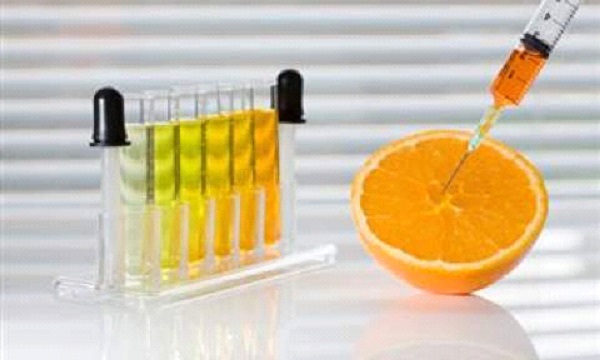
“Not only did the public begin to further recognize the existence and threat of GMOs thanks to his research, but numerous countries like Russia and others actually enacted a suspension on the import of genetically modified maize due to public health concerns.”
The lead researcher behind the monumental study that linked Monsanto’s GMOs and best-selling herbicide Roundup to tumor development and early death is now blowing the whistle on many corporate scientists who are not just close to Monsanto and profit-harvesting GMO crops — many of them actually have or are seeking their own GMO patents. These patents, of course, enable them to make bountiful amounts of cash. Other corporate scientists are on (or ‘were’ at one point) Monsanto’s pay roll, including former Monsanto executive turned Deputy Commissioner for Foods at the FDA Michael R. Taylor.
Dr. Gilles-Eric Séralini, a French scientists who has been under assault from Monsanto and pro-GMO scientists, was responsible for perhaps the largest awakening over the dangers of Monsanto’s GMO foods that we have ever seen. Not only did the public begin to further recognize the existence and threat of GMOs thanks to his research, but numerous countries like Russia and others actually enacted a suspension on the import of genetically modified maize due to public health concerns.
This, of course, upset the Monsanto-funded corporate scientists who proverbially ‘unleashed the dogs’ on Dr. Séralini. Even Monsanto released a comment, stating that the lifelong rat study wasn’t sufficient to substantiate any real health concerns. The company itself, amazingly, only conducted a 90 day trial period for its GMOs before unleashing them on the public.
Previous Peer-Reviewed Evidence Highlighting GMO Danger Ignored by ‘Scientists’ It’s important to remember that Séralini’s work may be the most popular within the media, but it’s not the only research linking GMOs and Roundup to serious health effects. Monsanto and fellow goons failed to mention this truth, especially the fact that Monsanto’s Roundup has been associated with over 29 negative health conditions according to peer-reviewed studies available on PubMed. And these conditions are nothing minor. Health effects linked to Roundup include:
• CancerThese are serious disorders that result from the very Roundup that is used on crops by farmers worldwide before hitting your dinner table. In fact an increased amount of usage is now needed thanks to ineffective GMO crops that are now being eaten by mutated superbugs that have developed a resistance to Monsanto’s built-in GMO pesticides.
Roundup covered crops that eventually land on dinner tables worldwide.
But perhaps very few scientists around the globe actually dare speak about these dangers due to the overwhelming political influence Monsanto and other biotech companies have over nations around the globe. We know thanks to 2007 WikiLeaks cables that not only are most if not all U.S. ambassadors on Monsanto payroll, but that prominent U.S. political figures have threatened nations who oppose Monsanto with ‘military-style trade wars’. A threat that has managed to strike fear into many nations who would not risk massive retaliation from the United States.
Now, however, the awareness has grown stronger than ever before and consumers worldwide are taking a stand. A stand that countries around the globe can no longer ignore, nor can corrupt corporate scientists dissipate through phony bought-and-paid-for garbage science.

From Nation of Change:
While good bacteria died, highly pathogenic bacteria were unaffected by glyphosate.

Much of the public forgets the gut when it comes to warding off the flu and other more threatening diseases, but the gut—and its army of beneficial bacteria—are essential in protecting us from harm. That’s why eating genetically modified and/or conventionally farmed food could be a direct assault on your own health. Most recently, research has shown that Monsanto’s herbicide, known as Roundup, is destroying gut health, threatening overall health of animals, people, and the planet significantly.
The journal Current Microbiology recently published a study that caught Monsanto’s Roundup herbicide’s active ingredient, glyphosate, suppressing beneficial bacteria in poultry specimens. Given that gut health is directly linked to chronic illnesses and overall health, this isn’t exactly welcome news for people who can’t always afford or who lack access to organic, locally grown food.
But it gets worse. While good bacteria died, highly pathogenic bacteria were unaffected by glyphosate. These pathogens include several strains of Salmonella and the class Colstridia, anaerobic bacteria known to be some of the deadliest known to us, including C. tetani (tetanus) and C. botulinum (botulin). Although botulin is used to ease overactive muscles and in Botox, America’s most popular cosmetic procedure, it takes but 75 billionths of a gram to kill someone weighing 75 kg (165 lbs).
“A reduction of beneficial bacteria in the gastrointestinal tract microiota by ingestion of glyphosate could disturb the normal gut bacterial community,” the authors of the study wrote. Glyphosate, they added, “could be a significant predisposing factor that is associated with the increase in Clostridia botulinum-mediated diseases by suppressing the antagonistic effect of these [good] bacteria on clostridia.”
Dangers of PesticidesThis is hardly the first time eyebrows have been raised over glyphosate. The toxic ingredient is also known for causing sterility in men, obesity, and Parkinson’s and related diseases, and not just in field workers of conventional farms but also in locals and animals that drink the groundwater polluted by such establishments.
Finally, the researchers also noted that glyphosate can cause bacteria to genetically mutate with chronic exposure. And the food we eat, the animals we eat, and we ourselves are already victims of chronic exposure, which is partially why concentrated animal feeding operations (CAFOs) are today known for being hotbeds of botulism and other pathogens. (Cattle in Ireland have already been victims of botulism thanks to contaminated poultry litter.)
Pesticides and Food Irradiation Not the AnswerTo eradicate the problem of food contamination, the Food and Drug Administration recently loosened their grip on the conventional use of food irradiation, allowing now 1.5 Kilograys more than last month to dose poultry. One Kilogray, by the way, offers the same amount of radiation as 2,500,000 chest x-rays. Food radiation by itself is another hotly debated health dilemma and, frankly, a dead end.
That’s because food irradiation doesn’t solve the problem that glyphosate causes direct harm to workers, consumers, animals, and the planet—even the very soil we grow our food in that we find lacking in nutrients of late.
There are simple ways to avoid pesticides in food and overall exposure. Read our updated list of the dirty dozen foods you should always buy organic, plus 15 that are low in pesticide residue.

From Nation of Change:
The big seed companies use a strategy to attack seed savers that consists of three stages: “investigations, coerced settlements, and, if that fails, litigation.”

Does Monsanto own all future generations of genetically modified seeds that it sells? The Missouri-based agribusiness giant wants farmers to pay a royalty to plant any seed that descended from a patented original. The legal decision has ramifications for other patented "inventions" that reproduce themselves like strands of DNA.
The U.S. Supreme Court appeared to side with Monsanto in oral arguments heard this past February in a lawsuit that the world's largest seed company has brought against Vernon Hugh Bowman, a 75 year old farmer in Indiana, who grows corn, soybeans and wheat on a small farm of 600 acres (242 hectares).
The impending court decision, which will probably come this June, has sparked alarm among consumer advocates. "Judges don't understand agriculture," says Bill Freese, science policy analyst for the Center for Food Safety, a Washington DC based watchdog group. "The Monsantos of the world have everyone convinced through a massive misinformation campaigns that biotech crops are essential to feed the world, and patents are necessary for biotech crops. So there's this patina of virtuous innovation when in fact what biotechnology is really used for primarily is to develop pesticide-promoting crops."
The crop in question is Roundup Ready soybeans, which are genetically-altered to be resistant to glyphosate, the main chemical in Roundup, a pesticide also manufactured by Monsanto.
Bowman first fought back when Monsanto sued him in 2007 for patent infringement. At the time, Bowman was a regular Monsanto customer. Like the 275,000 other U.S. farmers who buy "Roundup Ready" seeds, Bowman bought his seeds from Monsanto and signed a contract stating that he would not save Roundup seeds to replant. He didn't.
But from 1999 to 2007, in addition to his usual order of Roundup Ready soybeans for seed, Bowman purchased commodity-grade soybeans, called "commodity grain," from a local grain elevator where farmers like himself sell their crops. Typically, commodity grain is used for animal feed. Bowman, however, decided to use the commodity grain - a mix comprising of many different varieties of soybeans including some Roundup Ready seeds - to plant a second, lower yield soybean harvest later in the season.
"What I wanted was a cheap source of seed," Bowman told National Public Radio, a U.S. network.
Roundup Ready was first marketed in 1996, and it was a hit with farmers in the U.S., the largest producer of genetically modified food in the world. These days, more than 90 percent of U.S.-grown soybeans are Roundup Ready, Monsanto said in court documents. As a result, organic farmers say, it's getting harder to find diverse strains of traditional, heirloom soybeans.
Therefore, it's no surprise that some of the soybeans Bowman took home from the grain elevator contained Monsanto's patented soybeans. For eight years, Bowman planted the commodity-grade soybeans for his second harvest, sprayed Roundup on them, harvested the plants that grew and kept the seeds they produced to plant later. It's these "third generation" seeds that are at the heart of the Supreme Court case now.
Bowman saw nothing wrong with what he was doing. "All through history we have always been allowed to go to an elevator and buy commodity grain and plant it," he told the New York Times.
Not any more, if companies like Monsanto who control most of the global commercial seed market, have their way. The big seed companies use a strategy to attack seed savers that consists of three stages: "investigations; coerced settlements; and, if that fails, litigation," says the Center for Food Safety.
Most news sources are funded by corporations and investors. Their goal is to drive people to advertisers while pushing the corporate agenda. NationofChange is a 501(c)3 organization funded almost 100% from its readers–you! Our only accountability is to the public. Click here to make a generous donation.
To date, in the U.S., Monsanto has sued 410 farmers and 56 small farm businesses for alleged seed patent violation. Monsanto has won every single case. The company was awarded nearly $24 million from just 72 of those judgments, the Center for Food Safety found.
Additionally, Freese estimates that as many as 4,500 small farmers who could not afford legal representation have been forced to accept out-of-court settlements. He estimates, based on Monsanto's documents, that those farmers paid Monsanto between $85 and $160 million in out-of-court settlements.
"As early as 2003, Monsanto had a department of 75 employees with a budget of $10 million for the sole purpose of pursuing farmers for patent infringement," the Center for Food Safety stated in a new report, "Seed Giants vs. U.S. Farmers." "Agrichemical companies earn billions of dollars each year, and farmers cannot possibly compete against such resources."
"Patents are necessary to ensure that we are paid for our products and for all the investments we put into developing these products," the company states on its website in its defense. "Monsanto invests more than $2.6 million per day in research and development that ultimately benefits farmers and consumers. Without the protection of patents, this would not be possible."
The Center for Food Safety wants federal, state and local governments to work together to regulate the biotechnology industry, using a law passed by the U.S. Congress in 1970 as a guideline. The 42 year old Plant Variety Protection Act allowed intellectual property laws to be applied to new and distinct plants.
But it had an exemption for farmers to save seeds of such plants and replant them so long as they do not resell the seed. Plant breeders are also allowed to use protected seed for further breeding work. The law was designed to protect one seed company - say Monsanto - from another - like DuPont. This law did not view farmers as competitors to companies. In 2001, the U.S. Supreme Court ruled that non-hybrid plants could be patented. The final decision was written by Justice Clarence Thomas, who incidentally worked as an attorney for Monsanto in the 1970s. Since then, courts have tended to side with seed companies suing for patent infringement.
"This (Plant Variety Protection Act) has been largely sidelined now by the patent system," says Freese. "Now companies with patents have this inordinate control over seeds, and they can criminalize seed saving.
Bowman spent $31,000 of his own money on legal fees before a law firm agreed to defend him for free. If Monsanto wins the case against him, he'll have to pay almost $85,000 to the corporation, which made $7 billion in profits in fiscal year 2012.
Bowman's legal argument rests on a 150-year old Supreme Court common law known as the "patent exhaustion doctrine." His lawyer, Mark P. Walters, argued that Monsanto's patent did not apply to seeds descended from Roundup Ready soybeans that were then sold to a grain elevator and mixed with other soybeans.
Monsanto contended that Bowman, by growing and saving seeds from the commodity soybeans he bought from the grain elevator, was making "copies" of the original, patented Monsanto product.
Two lower courts agreed with Monsanto. In 2009, district court in Indiana awarded the company more than $84,000. The Court of Appeals for the Federal Circuit, which specializes in patent law, upheld the decision in 2011.
In October 2012, the Supreme Court agreed to hear the case, despite objections made by the Obama administration, which said the judges should let the previous rulings stand. The U.S. government filed a friend of the court brief in support of Monsanto, stating that "the Court's decision could also affect the enforcement of patents for man-made cell lines, DNA molecules, some nanotechnologies and other technologies that involve self-replicating features."
Not surprisingly, the Biotechnology Industry Organization, the Business Software Alliance, Intellectual Property Owners Association and other industry and research groups also filed friend of the court briefs on Monsanto's side.
On February 19, Supreme Court justices heard both sides of the case.
"Without the ability to limit reproduction of soybeans containing this patented trait, Monsanto could not have commercialized its invention, and never would have produced what is, by now, the most popular agricultural technology in America," Monsanto's lawyer and former U.S. solicitor general, Seth P. Waxman, told the court.
Waxman was allowed to talk uninterrupted at length, "which is usually a sign of impending victory," the New York Times reported.
In contrast, the justices fired a volley of skeptical questions at Bowman's attorney, Mark P. Walters. When Walters argued that Monsanto's patent didn't apply to subsequent generations of seeds after the initial sale, Antonin Scalia, another judge, interrupted him.
"Why in the world would anybody spend any money to try to improve the seed if, as soon as they sold the first one, anybody could grow more and have as many of those seeds as they want?" Scalia asked.
Later, Walters argued that Bowman was "making use" of the commodity grain that he bought on the open market when he planted it, not making a copy of an original Monsanto seed. He was rebuked by Stephen Breyer, another of the judges. "You can feed it to animals, you can feed it to your family, make tofu turkeys," Breyer interjected. "But... you can't pick up those seeds that you've just bought and throw them in a child's face. You can't do that because there's a law that says you can't do it. Now, there's another law that says you cannot make copies of a patented invention."
"If the concept is the sale of a parent plant exhausts the patentholder's rights... we would have to go all the way back to the very first Roundup Ready plant that was created," said Melissa Arbus Sherry, the lawyer representing the Obama administration. "Every single Roundup Ready seed in existence today is the progeny of that one parent plant and... that would eviscerate patent protections. There would be no incentive to invest, not just in Roundup Ready soybeans or not even agricultural technology."
Walters believes there is still a possibility that the Supreme Court could reverse the decision or send the case back to the lower courts for retrial. He said three of the justices appeared to sympathize with the idea that a farmer ought to be able to sell, plant or grow new seeds from ones he buys on the open market.
"There are many interests: biotech, seed companies, large and small farmers. They're not aligned," Walters told CorpWatch. "Small farmers are not very well organized. They're not a strong voice in Congress. Right now one company with a particular stake is trying to make a case based on a set of particular facts."
Both Walters and Freese agree that in today's political climate, it would be an uphill battle to pass legislation that would regulate the powerful biotech industry. Last year, Monsanto, other agribusiness and food companies spent more than $45 million to defeat a proposition in California that would have required labels on some genetically modified foods sold at stores.
Meanwhile, Bowman has to drive out of the state of Illinois - to Ohio - in order to find cheap, non-GMO commodity soybeans he can plant without the threat of a patent infringement suit. Every time, he does this, he passes numerous grain elevators, all of which brim with soybeans.

From care2 21 APRIL 2013

AUSTIN, Texas – With genetically modified ingredients now deeply embedded in the U.S. food supply, it’s a decision that many in the industry are calling a game changer.
Whole Foods Market plans to require labeling of all GMO foods sold in its stores by 2018, becoming the first major retailer in the nation to do so. The decision was led by customer demand, according to Whole Foods executive global grocery coordinator Errol Schweizer.
“The rise of fair trade, the growth of organic, of farmer’s markets, all point to the fact that our customers want to know where their food is coming from, what it’s made from, who is making it,” Schweizer said. “The more information we can give our customers, the better it is for us and them, as well as for our producers.”
The Food and Drug Administration has deemed GMO products safe. Some are concerned that the labeling could mislead consumers about the potential risk, but Schweizer said the company is simply offering transparency. “We’re not making a value judgment, and we’re not interpreting the science one way or the other,” he explained. “We’re just saying the customer has the right to make an informed choice on what they are feeding themselves or their family.” Whole Foods already sells more than 3,300 products that are verified non-GMO.
Schweizer will be among business leaders from around the country coming together later this month for the spring conference of the Social Venture Network. Schweizer said his message there starts with cooperation. “Mission-oriented businesses of various scales, big and small, can work together to further the values and mission of what they’re doing. So, it’s really about partnering for the greater good and running a business in the meantime.”
The Social Venture Network conference is set for April 25-28 in San Diego. More info on conference is available at http://svn.org/attend-an-event/2013-spring-conference. This story was created by Soundbite Services.

From AlterNet 22 MAY 2013
Take Action
Fed up with the fact that she has to spend “a small fortune” in order to feed her family things she says “aren’t poisonous,” Tami Canal of Utah has organized a global movement against the giant chemical and seed corporation Monsanto. Monsanto is the conglomerate mastermind behind many of the pesticides and genetically engineered seeds that pervade farm fields around the world. Monsanto produces the world’s top-selling herbicide; 40 percent of US crops contain its genes; it spends millions lobbying the government each year; and several of its factories are now toxic Superfund sites.
Canal, who has a 17-month-old baby and a six-year-old girl, cites concerns over public health, adverse affects on the environment, and political corruption as her motivation to organize against the biotech giant. And her concern has resonated. Protesters around the world have responded to Canal’s call to action, and will amplify their dissatisfaction with the corporation in a “March Against Monsanto” on May 25.
“Not only are they threatening our children and ourselves as well, but also the environment,” Canal says. “The declining bee population has been linked to the pesticides that they use, and that’s just the start. I’ve been reading studies recently that butterflies are starting to disappear, and birds. It’s only a matter of time, it’s pretty much a domino effect.”
What started as one mother’s call to action on a Facebook page has become a movement with more than 400 demonstrations scheduled in 50 countries and 250 cities around the globe. The events are organized online via an open Google Document, where people can find the protest nearest them. The March Against Monsanto Facebook page has received more than 105,000 “likes.” It has reached more than 10,000,000 people in the last week according to its website, which averages over 40,000 visitors per day.
One of the short-term goals of the march, Canal says, is to spread immediate awareness about the offenses Monsanto commits. Another is to inspire people to vote with their dollars by boycotting Monsanto-owned companies that put unsafe products—like genetically modified organisms (GMO) and pesticide-ridden foods—on the market. The effort also advocates for labeling of genetically modified products so consumers can make informed decisions, and demands further scientific research on the health effects of GMOs.
Canal is particularly interested in drawing attention to what she calls dangerous products that are marketed to children. “Like Kellogg's,” she says. “For example, Froot Loops is 100-percent genetically engineered, and that’s a children's cereal. That’s irresponsible and unacceptable on so many levels.”
The ultimate goal of the march is a complete ban on Monsanto within the US. At least 60 countries worldwide, including Austria, Bulgaria, Germany, Greece, Hungary, Ireland, Japan, New Zealand, Peru, South Australia, Russia, France, and Switzerland, have implemented outright bans of Monsanto and its genetic modification of food products.
“I don’t understand why the US isn’t on the forefront of that thinking,” says Canal. “[Monsanto] has a long history of crimes against humanity.”
Here are the five most disturbing reasons you should join the March Against Monsanto:
Remember the horrors of Operation Ranch Hand during the Vietnam War, when the US military designed a chemical warfare program and used the herbicide and defoliant Agent Orange to kill and maim 400,000 people (estimated by the Vietnam government), and ultimately cause birth defects for 500,000 children? Monsanto made that possible.
Monsanto began as a chemical company in 1901 and was responsible for some of the most damaging toxins in US history, like polychlorinated biphenyls (PCB’s), and dioxin. Consumer advocacy group Food and Water Watch (FWW) released a report on APril 3 detailing Monsanto’s role in chemical disasters, Agent Orange, and the first genetically modified plant cell. The report shows that the “feed-the-world” agricultural and life sciences company Monsanto markets itself as today is only a recent development. The majority of Monsanto’s history is involved with heavy industrial chemical production, including the supply of Agent Orange to the US for Vietnam operations from 1962-'71.
Ronnie Cummins, executive director of the Organic Consumers Association told Common Dreams, in response to the FWW report:
Despite its various marketing incarnations over the years, Monsanto is a chemical company that got its start selling saccharin to Coca-Cola, then Agent Orange to the U.S. military, and in recent years, seeds genetically engineered to contain and withstand massive amounts of Monsanto herbicides and pesticides. Monsanto has become synonymous with the corporatization and industrialization of our food supply.
Another example, according to the FWW corporate profile, is a Monsanto plant in Sauget, Illinois that produced 99 percent of PCBs until they were banned in 1976. PCBs are carcinogenic and harmful to multiple organs and systems, but they're still illegally dumped into waterways. They accumulate in plants and food crops, as well as fish and other aquatic lifeforms, which enter the human food supply. The Sauget plant is now home to two Superfund sites.
Monsanto’s chemicals continue to impact the world, both inside and outside of the United States, and Monsanto has settled a number of chemical lawsuits in the last couple of years alone. Scientific studies have linked the chemicals in Monsanto’s Roundup pesticides to Parkinson’s disease, Alzheimers disease, autism and cancer.
Another example of Monsanto’s chemical folly came in February when a French court declared Monsanto guilty of chemical poisoning of French grain grower, Paul Francois. The farmer suffered neurological problems including memory loss, headaches and stammering after inhaling Monsanto's Lasso weedkiller in 2004, and blames the agri-business giant for not providing adequate warnings on the product label.
AlterNet published an article in April titled, “Exposed: Monsanto’s Chemical War Against Indigenous Hawaiians,” which details a series of protests on the five Hawaiian Islands Monsanto and other biotech companies have turned into the world’s “ground zero” for chemical testing and food engineering.
2. Building a monopoly, putting farmers out of work.
There is nothing more quintessentially American than the independent family farmer; and there is nothing more un-American than stomping out that farmer’s livelihood to bolster your corporate monopoly. Monsanto is attempting this as it sues small farmers out of their livelihoods time and again. You might have heard about the 75-year-old soybean farmer from Indiana, Vernon Hugh Bowman, who was ordered in the beginning of May to pay Monsanto $85,000 in damages for using second-generation seeds genetically modified with Monsanto’s pesticide resistant “Roundup Ready,” treatment. He pulled the seeds from the local grain elevator, which is usually used for feed crop, and planted them. The court decided Monsanto’s patent extends even to the offspring of its seeds, and the farmer had violated the company’s patent. Bowman is by no means the only US farmer to be sent into debt at Monsanto’s hands. Monsanto reported enormous profits from 2012 to shareholders in January, while American farmers filed into Washington, DC to challenge the corporation’s right to sue farmers whose fields have become contaminated with Monsanto’s seeds. Oral arguments began on January 10 before the U.S. Court of Appeals to decide whether to reverse the cases' dismissal last February. The corporation’s total revenue reached $2.94 billion at the end of 2012, and its earnings nearly doubled analysts' projections. In the article, “Monsanto's Earnings Nearly Double as They Create a Farming Monopoly”—originally published in Al Jazeera and reprinted on AlterNet on January 16—Charlotte Silver outlines how Monsanto has increased the price of the Roundup herbicide and exploiting its patent on transgenic corn, soybean and cotton, to gain control over those agricultural industries in the US, “…effectively squeezing out conventional farmers (those using non-transgenic seeds) and eliminating their capacity to viably participate and compete on the market.” The company also uses its power to coerce seed dealers out of stocking many of its competitor products. Monsanto was under investigation by the Department of Justice for violating anti-trust laws by practicing anticompetitive activities towards other biotech companies until the end of 2012. The investigation was quietly closed before the end of last year. Monsanto exerts vast control over the seed industry. It started buying out seed companies as early as 1982. Some of Monsanto’s most significant purchases were Asgrow (soybeans), Delta and Pine Land (cotton), DeKalb (corn), Seminis (vegetables) and Holden’s Foundation Seeds (in 1997). Monsanto is unmatched in its tactics for squashing its competition, but the US has not put its antitrust laws into practice to clamp down on the corporate monopoly it's forming. 3. Controlling the food, privatizing the water. Half of the Earth’s population will live in an area with significant water stress by 2030, according to estimates from the Organization for Economic Cooperation & Development. Corporations like Monsanto (along with Royal Dutch Shell and Nestle) are vying for a future in which free water supply is a thing of the past, and private companies control public water sources. According to a government report titled "Intelligence Community Assessment; Global Water Security," by 2025, the world's population will likely exceed 8 billion people, and the demand for water will be 40 percent higher than sustainable water supplies available, with water needs of around 6,900 billion cubic meters due to population growth. Private corporations already own 5 percent of the world's fresh water. Billionaires and companies, including Monsanto, are purchasing the rights to groundwater and aquifers. In an even more ominous twist, Monsanto is accused of dumping its plethora of toxic chemicals, including PCBs, dioxin and glyophosate (Roundup) into the water supply of various nations worldwide. Then, seeing a profitable market niche, it has begun privatizing those water sources it polluted, filtering the water, and selling it back to the public.4. Running the FDA, writing its own protection laws.
Ex-Monsanto executives run the United States Food and Drug Administration, the agency tasked with ensuring food safety for the American public.
This obvious conflict of interest could explain the lack of government-led research on the long-term effects of GM products. Recently, the U.S. Congress and president together passed the law that has been dubbed “Monsanto Protection Act.” Among other things, the new law bans courts from halting the sale of Monsanto’s genetically modified seeds. The pro-Monsanto “Farmer Assurance Provision, Section 735,” rider was quietly slipped into Agricultural Appropriations provisions of the HR 933 Continuing Resolution spending bill, designed to avert a federal government shutdown. It states that the department of agriculture “shall, notwithstanding any other provisions of law, immediately grant temporary permits to continue using the [GE] seed at the request of a farmer or producer [Monsanto].” Obama signed the law on March 29. It allows the agribusiness giant to promote and plant GMO and GE seeds free from any judicial litigation that might deem such crops unsafe. Even if a court review determines that a GMO crop harms humans, Section 735 allows the seeds to be planted once the USDA approves them. Public health lawyer Michele Simon told the New York Daily News the Senate bill requires the USDA to “ignore any court ruling that would otherwise halt the planting of new genetically mengineered crops.”
5. Continuing environmental nightmares.
As Tami Canal points out, studies have linked Monsanto and other biotech conglomerates to the decline of bee colonies in the US and abroad.
Their environmental blunders don’t stop there. In 2002 the Washington Post published a piece titled “Monsanto Hid Decades of Pollution,” outlining the corporation’s pollution of an Alabama town with toxic PCBs for decades without disclosure.
The Union of Concerned Scientists (UCS) published an articledebunking Monsanto’s claim that it is a “leader and innovator in sustainable agriculture.”
While Monsanto advertises its technology as important to achieving such goals as adequate global food production and “reducing agriculture's negative impacts on the environment,” the UCS says in reality, the corporate giant stands in the way of sustainable agriculture.
For one, Monsanto’s policies promote pesticide resistance. “Their RoundupReady and Bt technologies lead to resistant weeds and insects that can make farming harder and reduce sustainability,” reads the UCS article.
The article also notes that Monsanto’s policies increase herbicide use, which can cause health effects, and perpetuates gene contamination, as engineered genes tend to show up in non-GE crops. Additionally, the UCS says Monsanto is a purveyor of monoculture because it focuses only on limited varieties of a few commodity crops, reducing biodiversity, and as a result, increasing pesticide and fertilizer pollution.
The union points out that Monsanto’s lobbying, advertising and stronghold over research on its products makes it difficult for farmers and policymakers to make informed decisions about more sustainable agriculture.
Finally, UCS says Monsanto contributes little to helping the world feed itself, and has failed to endorse science-backed solutions that don't give its products a central role.
***Tami Canal encourages those who can’t make it to the March Against Monsanto on Saturday to support and foster relationships with their local farmers, buy organic, plant a vegetable garden, and become more self-sustainable. “That is definitely the one way to break the bond Monsanto has on us,” she says. “People should get involved because this is basically an outright attack on humanity.”
April M. Short is a Bay Area journalist focusing on social justice reporting.
Received by email from a friend:
From Infomatic Films 2013: GMO a-go-go!

Australia and Terrorism - Part 1
Australia and Terrorism - Part 2
Australia and Terrorism - Part 3
Australia and Terrorism - Part 4

Gay, Lesbian, Transgender, HIV (GLTH) Asylum Seekers - Part 1
Gay, Lesbian, Transgender, HIV (GLTH) Asylum Seekers - Part 2
Gay, Lesbian, Transgender, HIV (GLTH) Asylum Seekers - Part 3



Mannie De Saxe also has a personal web site, which may be found by clicking on the link: RED JOS HUMAN RIGHTS ACTIVISM
Mannie's blogs may be accessed by clicking on to the following links:
MannieBlog (from 1 August 2003 to 31 December 2005)
Activist Kicks Backs - Blognow archive re-housed - 2005-2009
RED JOS BLOGSPOT (from January 2009 onwards)

This page created 23 APRIL 2012 and updated on 23 NOVEMBER 2016
PAGE 133